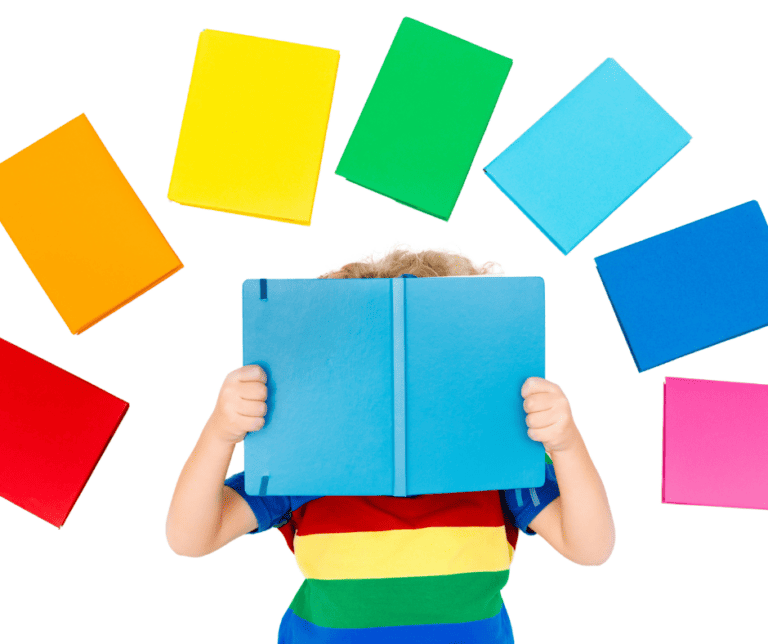Why Do Kids Struggle With Reading? (& Practical Help)
We may earn money from the products/companies mentioned in this post. As an Amazon Associate I earn from qualifying purchases. For more information, read our Terms & Disclosures.
Navigating your kid’s reading struggles can feel overwhelming. And that’s on a good day.
But today, I am going to share my family’s experience with our little one’s reading journey and why kids might struggle with reading.
We’ll also dive into some helpful resources that have made a difference in our lives.
Are you ready? Let’s get started!

We noticed our daughter, Mia, was having difficulty in reading as early as kindergarten.
Honestly, it was gut-wrenching to see her struggle while her friends seemed to be breezing through their books. I couldn’t help but wonder, “Why do kids struggle with reading?”
So, I threw myself into researching and looking for answers. Here are some of the main reasons why kids might find reading challenging and how we, as parents, can tackle those problems head-on.
1. Lack of Phonemic Awareness
At first, I was like, “What the heck is phonemic awareness?” But through my research and talking to experts, I’ve come to understand it’s the ability to hear and manipulate individual sounds in words.
To our surprise, Mia was struggling with this despite our bedtime stories ritual.
2. Limited Vocabulary
When kids have a limited vocabulary, it can make it challenging for them to read and comprehend what they’re reading. We realized Mia was no exception.
Our Solution: To expand Mia’s vocabulary, we started implementing the “word of the day” strategy at home.
3. Underdeveloped Comprehension Skills
While Mia started to improve her reading pace, she still struggled to understand what she had just read. We had to figure out how to develop her comprehension skills so she could get the most out of her reading experience.
4. Lack of Exposure to Diverse Reading Materials
When I thought about it, we always stuck to particular kinds of books for storytime with Mia.
You know, the classics and Disney stories. I soon realized that exposing her to more diverse reading materials would help her get used to different writing styles, genres, and content.
What Worked for Us: We signed up for a children’s book subscription box that regularly delivers a diverse range of age-appropriate books to your doorstep. Mia loves it, and so do we!
5. Anxiety and Low Confidence
I never considered that Mia’s lack of confidence in her reading abilities could be contributing to her struggles. But in conversations with her teachers, we learned she would get anxious when asked to read out loud, affecting her overall performance.
Common Reasons Kids Have Difficulty Reading
1. Dyslexia: The Invisible Barrier
“I can’t read the words, they’re all jumbled up.”
Does this sound familiar? If so, your child might have dyslexia. Dyslexia is a language-based learning disorder that affects the way people process written and spoken language.
Solution: Early intervention is essential! A specialized tutor can help your child develop reading strategies tailored to their specific needs. Plus, there are tons of assistive technology tools that can support your child’s learning journey.
2. Vision or Hearing Problems: Sensory Roadblocks
“I can’t see the words properly!” or “The sounds are all fuzzy!”
If this resonates, there’s a possibility that your child is experiencing vision or hearing problems that are impacting their reading ability.
Solution: Don’t hesitate to schedule an appointment with an eye doctor or audiologist. Early detection and treatment of potential vision or hearing issues will significantly improve your child’s ability to read. I can’t begin to explain the difference a pair of properly prescribed glasses made for my little one.
3. A Lack of Reading Exposure: It’s All About That Foundation
“I don’t know most of these words.”
Could it be that your child is struggling to read simply because they haven’t been exposed to a wide variety of words and texts?
Solution: Make reading a daily habit! Surround your child with books, engage in shared reading, and also let them see you read.
Strategies for Supporting Struggling Readers
Now that we’ve addressed some of the possible reasons behind reading struggles, let’s talk about how you can give your child the support they need. After all, isn’t that what we’re here for?
1. Patience and Encouragement: The Ultimate Duo
Remember the time when you were learning a new skill, and how frustrating it was when you just couldn’t ‘get it’? Kids feel that, too. Focus on giving plenty of praise and encouragement along the way, and remember to be patient.
2.Read together
Your presence and involvement can make a huge difference! Set aside some daily reading time with your little one, and make sure you’re sharing the experience and excitement with them. Reading together can be a total game-changer!
3.Play word games
Turn reading into a fun activity not just another chore! Make up silly word games, or find some online that can help improve their reading skills. Trust me; you’ll have a blast, and so will they!
4.Give them choices:
When kids get to pick out the books they want, they’re much more likely to be interested in reading them. So, let your little one choose their own reading materials and watch their enthusiasm grow!
Wrapping Up
My little one really struggled with reading not too long ago. As a parent, it can be confusing and frustrating, I but understanding the problem is the first step to help them overcome these obstacles and nurture a lifelong love for reading.
Let’s agree on one thing: there’s no one-size-fits-all solution.
What works for some might not work for others. But it’s worth giving these tips and resources a shot.






